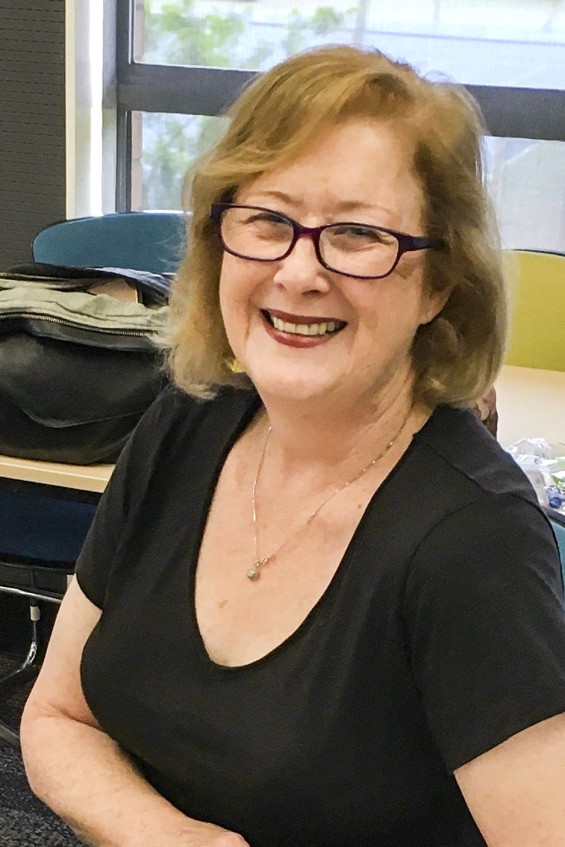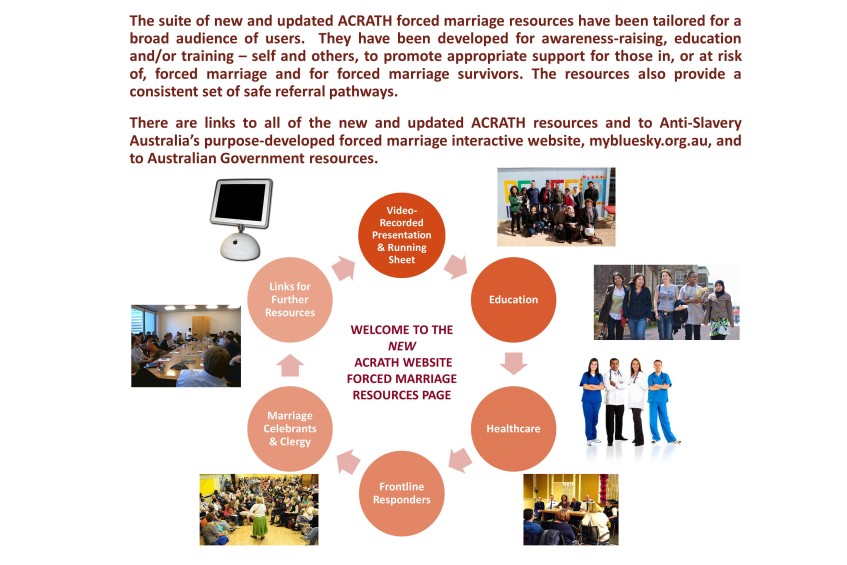Forced marriage the focus for new toolkit

Liz Payne, who developed the resource suite, has spent over five years with ACRATH building networks across Australia, educating secondary school teachers, frontline workers and developing resources on behalf of the organisation. Photo: Supplied.
The Australian Catholic Religious Against Trafficking in Humans (ACRATH) will release a suite of new and revised forced marriage resources during a launch via ZOOM next week, Thursday 27 August.
The compelling toolkit for those working to combat forced marriage and provides some disturbing information about forced marriage in Australia, detailing how Australian Federal Police (AFP) had 93 open investigations in 2019, most involving girls under 18 years, with a considerable number who faced being taken off-shore to be married without their full and free consent.
And while forced marriage has been illegal in Australia since 2013, it is still an existing blight on the future of many young Australian women.
“It’s so important that health workers, midwives, child protection workers and teachers know the right referral pathways for a person who discloses a forced marriage or an imminent forced marriage,” said Liz Payne, who developed the resources on behalf of ACRATH.
“Without knowing the correct way to respond to someone, that person can be left very vulnerable and their safety jeopardised.
“And we know that even though the AFP was investigating almost 100 cases last year, there are so many more that will never be reported because of fear of retribution, or of the concern that the victim has in relation to the shame that will be brought upon the family within their community.”

ACRATH is committed to working together towards the elimination of human trafficking in Australia, the Asia Pacific region, and globally. Photo: Supplied.
The Institute of Criminology estimates that for every victim of human trafficking and modern slavery detected in Australia, there are another four that go undetected.
Ms Payne has spent more than five years with ACRATH building networks across Australia, educating secondary school teachers, front-line workers and developing resources on behalf of the organisation.
A highlight of the launch will be the release of the 35-minute 2020 ACRATH Recorded Forced Marriage Video Presentation for educators, healthcare professionals and frontline responders including child protection workers, followed by a Q&A with Marilynn Ross from the Australian Federal Police.
The video has been developed in order to raise awareness and facilitate education and training - outlining appropriate support for those in, or at risk of, forced marriage, as well as forced marriage survivors. The video also provides a consistent set of safe referral pathways.
Supporting resources developed specifically for educators, marriage celebrants and clergy, midwives, nurses, healthcare professionals, and for frontline professionals, including child protection workers, will accompany the video presentation.
Ms Payne said the past five years has seen great collaboration between agencies and organisations, including the AFP, ACRATH, Red Cross, and Anti-Slavery Australia.
“ACRATH has developed amazing education and awareness raising resources and we are skilled advocates and educators ourselves,” Ms Payne said.
“By working closely with the AFP and other key organisations, we can take a more holistic approach to the issue and ensure that victims of forced marriage are kept safe, and that laws and policies are developed to protect them.”
She also highlighted that the recent development of the Forced Marriage Network in Western Australia was a testimony to this collaboration, where great work was being done by WA ACRATH and colleague organisations to train teachers and frontline workers.
